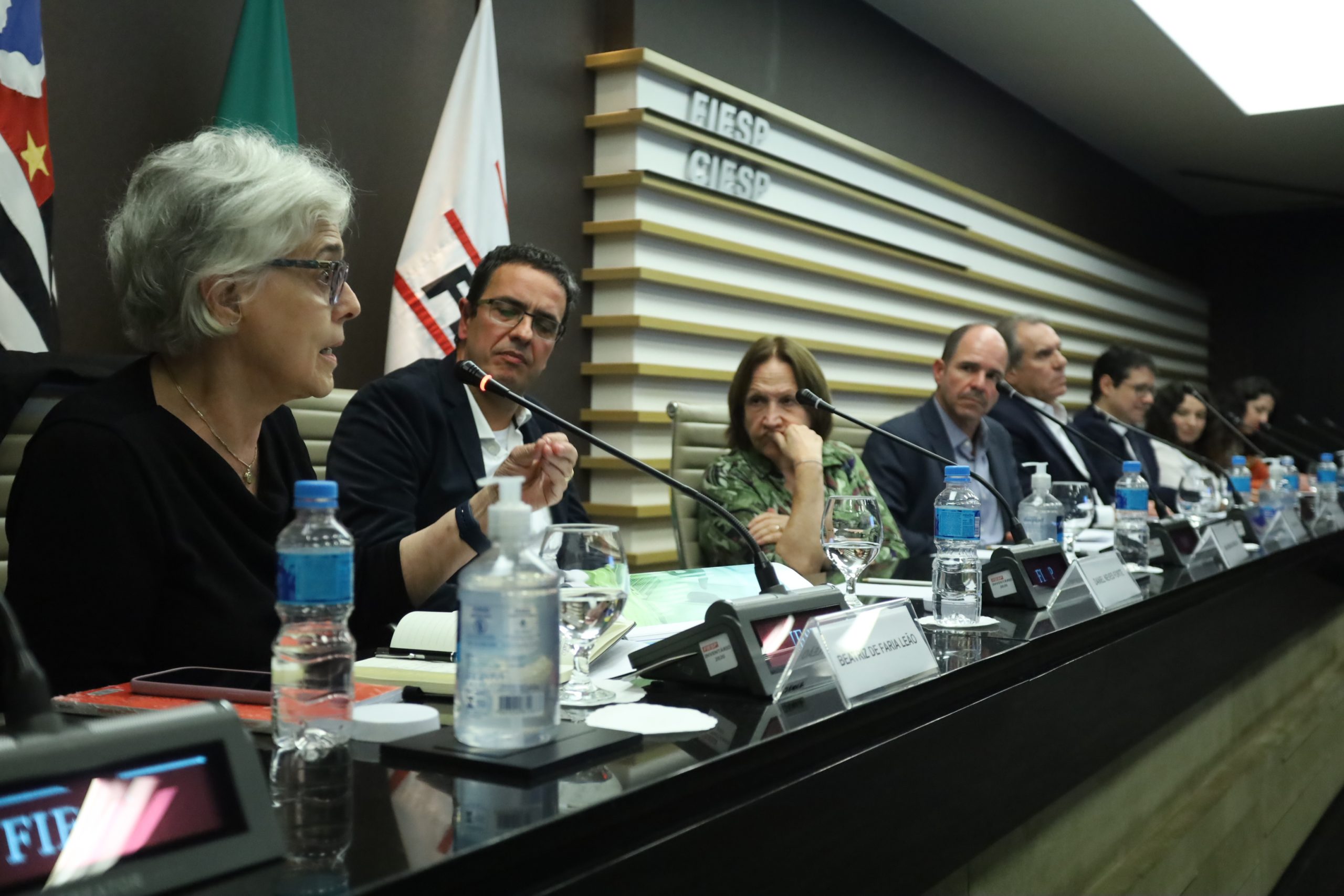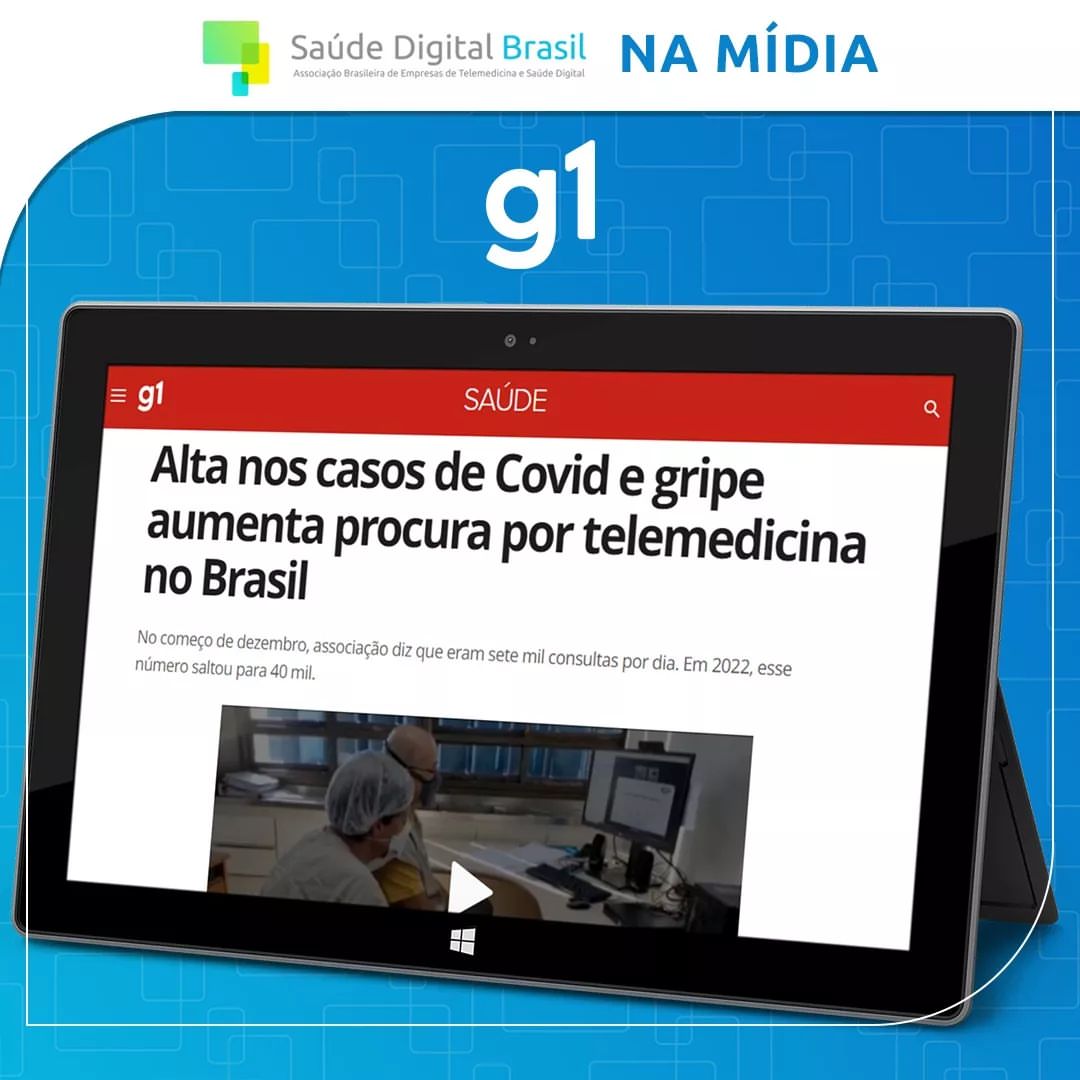The role of telemedicine as a tool for expanding healthcare, the importance of discussions on the topic for building ethics, the creation of public policies, public-private partnerships and concrete actions to promote digital healthcare in Brazil were topics brought up by experts.
Aiming to contextualize the importance of good practices in telehealth from the perspective of different experts, the Brazilian Association of Telemedicine and Digital Health Companies (Saúde Digital Brasil) held a roundtable to discuss the topic. The discussion took place during the launch event of the first edition of the Manual of Good Practices in Telemedicine and Telehealth, which took place last Thursday at Fiesp/Ciesp, in São Paulo. The roundtable was moderated by Caio Soares, president of Saúde Digital Brasil, and included the participation of Prof. Ana Maria Malik, Prof. Daniel Neves and Prof. Beatriz de Faria Leão.
Caio Soares spoke, from different points of view, about the impact of telemedicine on the health sector and the importance of good practices for the safe and quality exercise of telemedicine.
Ana Maria Malik, a doctor graduated from the Faculty of Medicine at USP, with a master's degree in Business Administration from Fundação Getúlio Vargas, a doctorate in Preventive Medicine from the University of São Paulo, a full professor at the School of Business Administration at FGV and coordinator of FGV Saúde, spoke about the role of telemedicine as a tool for expanding healthcare and the impact of good practices in patient care.
She emphasized that the scenario is one of great transformations and developments and that studying issues such as telemedicine and its practices is crucial for the sector and society in general. Good practices must also be available to those who use remote health services to protect not only health professionals, but also citizens.
Another point highlighted was the importance of standardizing good practices to combat regional discrepancies and the lack of universal access that still exists in the country. “It is important to be clear that telemedicine is not for everyone, all the time (…) I am very afraid that we will end up using it incorrectly. The existence of good practices and guidelines protects doctors and Brazilian citizens,” he concludes.
The second technician at the table to address the topic of good practices was Daniel Neves Forte, an intensive care and palliative care physician, professor of bioethics at the USP School of Medicine, supervisor of the Intensive Care Unit of the Clinical Emergencies Discipline at HC-FMUSP, who studied Education and Practice in Palliative Care at Harvard Medical School and was president of the Bioethics Committee of the Sírio-Libanês Hospital and of the National Academy of Palliative Care, 2017-2018.
The doctor began his speech with a personal and moving testimony about his experience coordinating an ICU at the Hospital das Clínicas of the University of São Paulo School of Medicine, during the peak of Covid-19 cases in the city of São Paulo. The doctor pointed out that telemedicine changed the lives of hospitalized patients, their families, who began to receive information from their hospitalized relatives via video calls, and the entire healthcare team. The experience he had, in addition to having saved lives, made the professional himself change his opinion regarding telemedicine “I completely changed my view on telemedicine and telehealth. I was one of those people who said that face-to-face relationships are irreplaceable. Today, I defend the opposite, that given the inequality that we are champions of, information should always be via video”.
The expert then emphasized that ethics are built on the debate of what is right and wrong and that it is in these debates that people and social groups reach consensuses that can change the morals that were in force until then. In this process, the law comes after the sedimentation of morals. Digital health is at this time of debate, which is why the manual assumes even greater relevance to the health sector.
“Morals in the virtual world applied to health are just beginning. What was done with this work is an ethical construction and it is this ethical construction that modifies morals itself and the law comes later”, he highlighted.
The last explanation of the debate was brought by Dr. Beatriz Faria Leão, a doctor graduated from the Federal University of Rio Grande do Sul, with a doctorate in medicine from Unifesp and a post-doctorate in Health Informatics from Erasmus University Rotrerdam, in the Netherlands. The professional has worked in health informatics since 1980 and is the founder of the Brazilian Society of Health Informatics – SBIS.
Dr. Beatriz highlighted the role of entities such as Saúde Digital Brasil in joining forces with the public and private sectors to expand the interoperability of health data. The professional's speech also addressed issues related to the relevance of system certification and expressed concern about the lack of public policies and human resources training in telehealth.
“We are not training researchers. We need to open scholarships to train people who are working in companies, but who can develop good practices. We need public policies in the digital area and for funding agencies to recognize digital health as an area of knowledge.” Regarding the work launched by Saúde Digital, Dr. Beatriz added “let this be a seed so that we can evolve and keep this manual alive and start discussing what needs to happen in the country so that this [good practices] really happens.”
After the explanation, those present had the opportunity to direct questions to the members of the technical table.
Divided into four chapters and prepared by the main leaders and authorities on the subject, the Manual of Good Practices for Telemedicine and Telehealth from Saúde Digital Brasil is an important tool for advancing the provision of telemedicine and telehealth services, maintaining a high level of quality and safety in the provision of services.
Click here to download the full content: https://saudedigitalbrasil.com.br/manual-de-boas-praticas/





